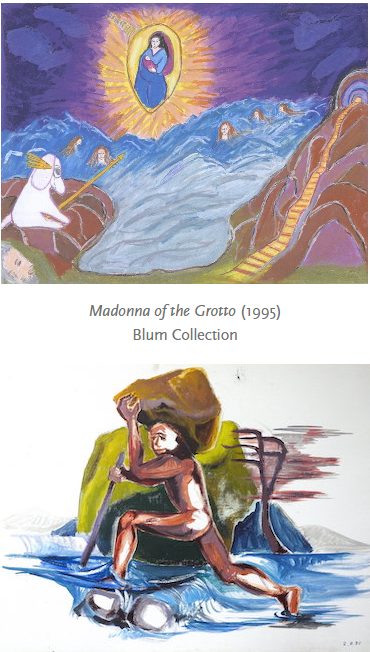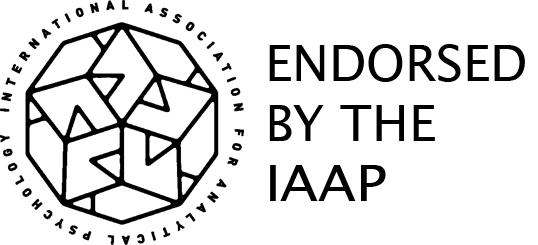
Date
- Sep 02 - 05 2025
Time
UTC+2- 1:00 pm - 4:45 pm
Local Time
- Timezone: America/New_York
- Date: Sep 02 - 05 2025
- Time: 7:00 am - 10:45 am
Cost
- CHF50.00
Speakers
- Ann Ulanov
- Donald Kalsched
- Joseph Cambray
- Murray Stein
- Dale Mathers
Location
- ISAP Zurich
- Stampfenbachstrasse 115, 8006 Zürich, Switzerland
Other Locations
Online-Zoom
Organiser

ISAP Zurich
Website
https://jungian.directory/related_organisation/international-school-of-analytical-psychology-zurich/Updated 13 Sept 2021. Special events and Lectures up to Dec 2021 updated.
Jungian Keynotes: September 2025
The Relevance of Analytical Psychology in Our Time
In what ways and in which contexts is Jung’s Analytical Psychology relevant today? For this special edition of Jungian Keynotes, we have invited seven guests and one ISAP analyst, all internationally renowned speakers. On the first day of this lecture series, Ann Ulanov talks about the psyche’s capacity to provide creative responses in the face of uncertainty. Next, Joseph Cambray gives a lecture on synchronicity and the reality of psychoid fields, followed by Jörg Rasche who investigates cultural complexes and politics in times of social media, war and ecocide. On the second day, Murray Stein offers a talk and a Q&A session about what Jungian Psychology stands for in the world today, while Michael Monhart addresses the role of productive imagination and relationship in analysis and in society. On the third day, Donald E. Kalsched explains how trauma-related defenses favour authoritarianism, extremism and polarization. On the final day, Cedrus Monte talks about how the current demise of the natural world is affecting, and affected by, the psyche. Dale Mathers looks at dreams as being related to the Unus Mundus and connecting us to the spiritual life of the Earth.
Event Schedule
Tuesday, 2 September | 13:00–14:45 | Ann Ulanov
Uncertainty: Is It a Gift?
We feel cultural foundations we have relied upon are upended: polarization, violent projections, anxiety abound. Have we access now to truth? Gifts psyche offers are creative gestures, found in energy from recalling projections, from exploring integrative projections, from locality and naming, and in new forms of communication and of liberation from destructive complexes.
15:00–16:45 | Joseph Cambray
Synchronicity, Complexity and the Psychoid Field: Towards Re-Enchantment
This presentation will begin with a brief history of the origins and development of Jung’s notions of synchronicity and the psychoid. Complexity and field theories will then be used to contemporize these ideas. Examples of synchronistic phenomena from the presenter’s practice will be explored using this approach. Further selected examples from the history of culture (especially where artisans or artists were able to represent profound knowledge of highly-complex natural phenomena well ahead of any scientific understanding) indicating the reality of psychoid fields will be offered.
17:00–18:45 | Jörg Rasche
Cultural Complexes and Politics
Cultural identities and narratives have an essential impact on the self concepts of nations and their political behavior. In times of social media with mass manipulation, with reactivated enemy projections and digital anesthesia regarding war or ecocide, we see a revival of archaic archetypal patterns threatening the basics of democracy. Analytical Psychology can contribute to a better understanding of these dynamics and become a resource for inner balance.
Wednesday, 3 September | 13:00–14:45 | Murray Stein
What Does Jungian Psychology Stand for in the World Today?
The lecture will be followed by a 15-minute Q&A session. Suggested reading for the lecture is the soon-to-be-published volume, The Self, Individuation, Communitas: Reflections on Fundamental Values in Analytical Psychology, edited by Murray Stein and Emilija Kiehl (Chiron Publications).
15:00–16:45 | Michael Monhart
Analytical Psychology in the 21st Century: Imagining a Relationship with a Future
This presentation highlights and explores in depth two themes: the role of the productive imagination and the particularly analytical concepts of relationship – for the unconscious, between analyst and analysand, and for the individual in society. Jungian psychology, uniquely, initiates a dialogue between the reproductive and the productive imagination modeled in alchemy. Similarly, a creative dialogic relationship with the unconscious is fostered through the analytical process. Both imagination and relationship form healing modalities for the individual and for their role in society.
Thursday, 4 September | 13:00–14:45 | Donald E. Kalsched
Inner and Outer Democracy vs. Authoritarianism in the Psyche and Culture
This lecture will describe how an inner authoritarian system of dissociative defenses, typical of traumatized individuals, compromises the democratic nature of the psyche and tyrannizes it with fearful authoritarian “voices.” When a culture suffers traumatic anxiety, the same authoritarian system structures its cultural narrative and leads to the extremism and polarization we see today in the West.
Friday, 5 September | 13:00–14:45 | Cedrus Monte
“Therefore, I behold death, since it teaches me how to live.” (C.G. Jung, The Red Book)
The psyche is a self-regulating system. So, too, is nature. What happens to the psyche when nature is no longer self-regulating? What happens to the natural world when the psyche is no longer self-regulating? What does the possible demise of the natural world constellate in the psyche, and what role might analytical psychology play when considering this outcome?
15:00–16:45 | Dale Mathers
The Dreaming Mind and the Unus Mundus
Jung said dreams are symbolic communications from the Self, compensating for the conscious attitude, arising from the collective unconscious, the place where the Unus Mundus – the world soul – speaks, as seen in Wolfgang Pauli’s dream of the world clock (which developed his thinking about the structure of the atom).
Our minds form symbols using the executive network, the salience network, and the default mode network. Dreams develop empathy, memory and creativity, and connect us to the spiritual life of our planet through the transcendent function.
-
Brief Overview
Jungian Keynotes is a series of eight lectures at the start of each new semester for both ISAP students and the public. This series is not an introduction to Analytical Psychology per se but offers a short introduction followed by an in-depth exploration of a key aspect of Jungian psychology. The lectures will highlight a different aspect each semester. ISAP’s teaching program is not, and cannot be, structured as a linear progression of levels or a tidy division into topics. Analytical Psychology is intrinsically holistic, so learning is by a process akin to osmosis.
-
00
days
-
00
hours
-
00
minutes
-
00
seconds
Related Events


Painting Exhibition

Chats with Analysts: Penelope Yungblut


